Health Technology Assessment (HTA)
Health Technology Assessment (HTA) is a multidisciplinary process that uses explicit methods to determine a health technology’s value for healthcare decision-making. Attitudes towards HTA vary globally, with some countries using a variety of methods and analyses and others hardly any.

New Publication: Assessing Evidence and Access Associated with NICE HTA Decisions Categorised as “Recommended in Line with Clinical Practice”
6 January 2017
A new OHE Research Paper assesses the nature of evidence used to reach HTA decisions which NICE have classified as “Recommended in Line with Clinical Practice”…
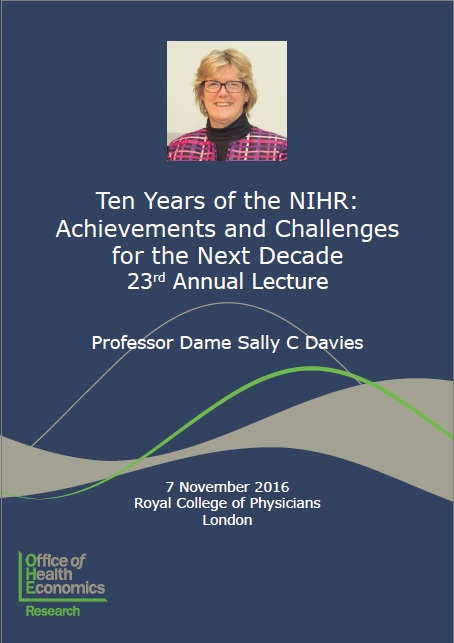
Ten Years of the NIHR: Achievements and Challenges for the Next Decade
1 June 2017
The National Institute for Health Research (NIHR), created in April 2006, is a “virtual” organisation often referred to as the research arm of the NHS. It…

Additional Elements of Value for Health Technology Assessment Decisions
1 May 2017
Antimicrobial resistance (AMR) occurs when microorganisms such as bacteria, viruses, fungi and parasites change in ways that render the medications used to cure the infections they…

Recently Published: Reports on Policy Options for Formulary Development in Middle-income Countries and A Case Study from Mexico
4 January 2017
OHE has published a new report discussing a framework to help middle-income countries efficiently identify medicines for formulary inclusion. A second publication applies this framework to…
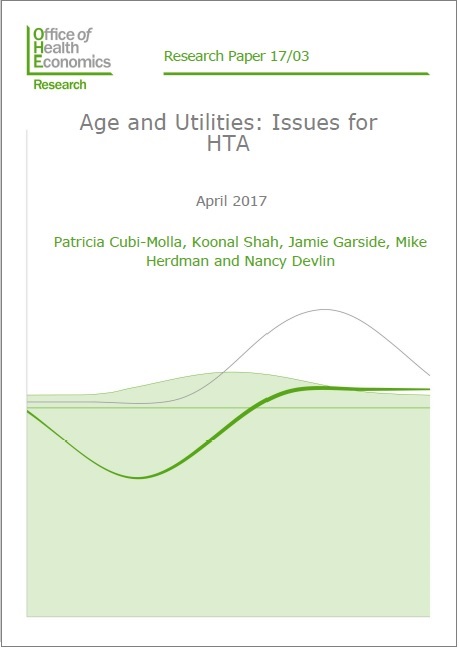
Age and Utilities: Issues for HTA
1 April 2017
Several studies have found differences in health state values by age. We investigate whether and how age affects respondents’ Time Trade-Off (TTO) and Visual Analogue Scale…

How can HTA meet the needs of health system and government decision makers?
4 January 2017
The 2015 meeting of the HTAi Asia Policy Forum meeting was held in Singapore, 29th -30th October 2015. The topic of the meeting was: How can…
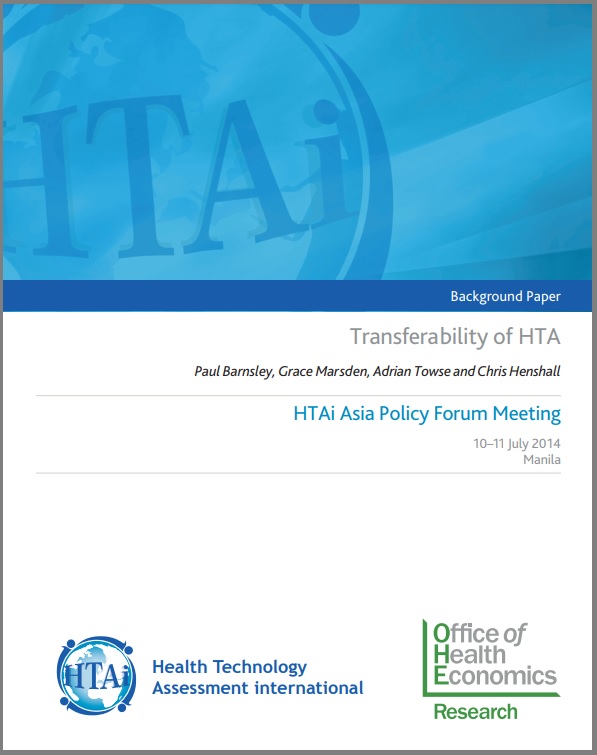
Transferability of HTA
4 January 2017
The second HTAi Asia Policy Forum meeting (2014) was held in Manilla, 10th -11th June 2014. The topic of the meeting was: Transferability of HTA. This…
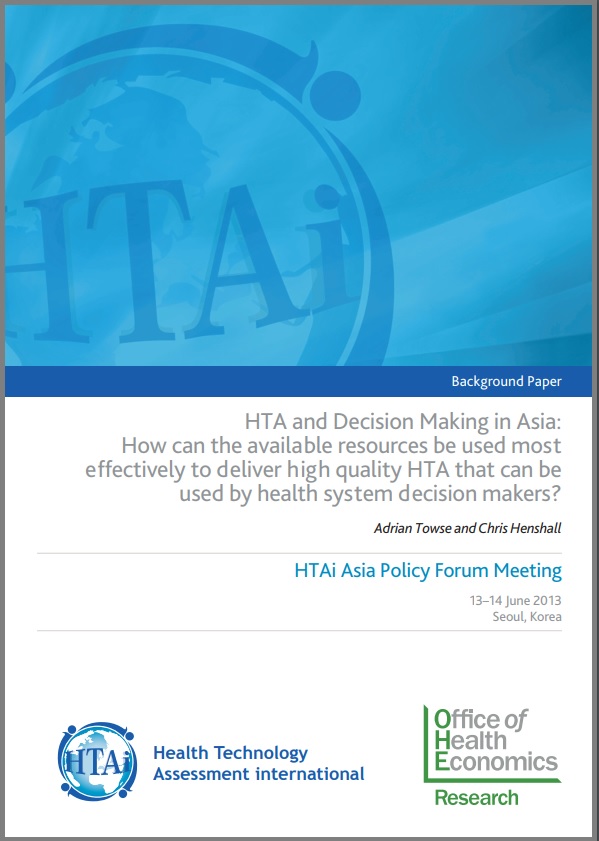
HTA and Decision Making in Asia: How can the available resources be used most effectively to deliver high quality HTA that can be used by health system decision makers?
4 January 2017
The HTAi Asia Policy Forum meeting 2013 was held in Seoul, 13th -14th June 2013. This was the first of several annual meetings of the HTAi…
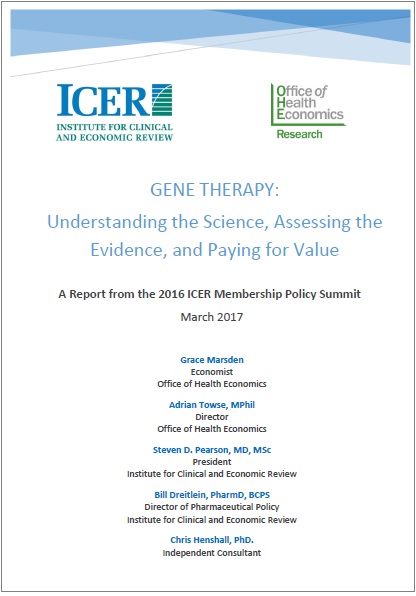
Gene Therapy: Understanding the Science, Assessing the Evidence, and Paying for Value
1 March 2017
This report presents an analysis of the significant clinical potential of gene therapy and the unique challenges in developing and evaluating evidence on their effectiveness and…